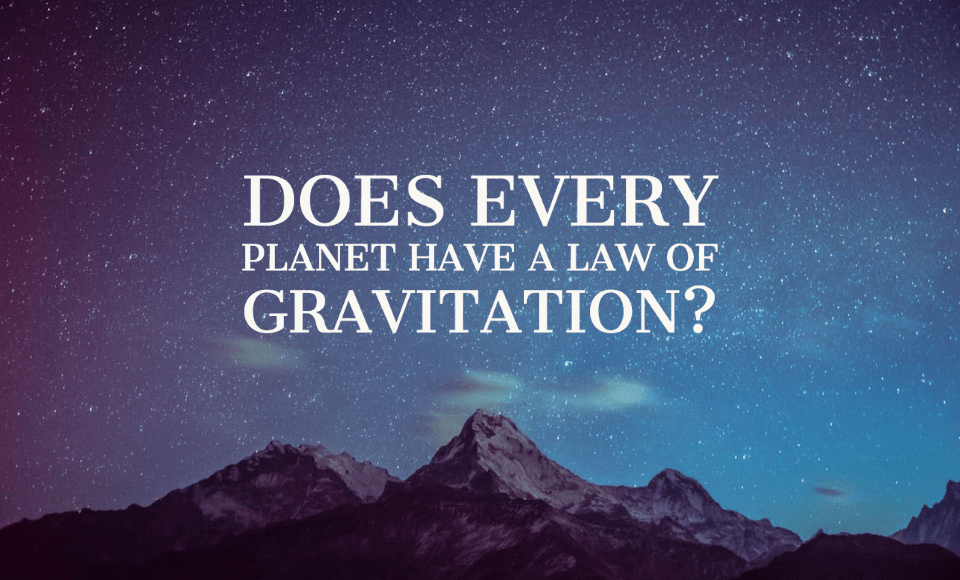Newton’sLaw of Universal Gravitation, commonly known as the law of gravity, is one of the fundamentals of science that we learned in school. Whether we are aware of it or not, the law of gravity affects us in many ways. Our life here on Earth is possible because of gravity, and living in a world without it is unimaginable. However, if the law of gravity is vital on Earth, would it be the same thing in other planets. Mainly, does every planet have a law of gravitation?
What is the Law of Gravitation?
We all probably heard the famous story behind Newton’s Law of Universal Gravitation. The story started when young Isaac Newton sat beneath an apple tree on his mother’s garden. He was pondering upon the universe when suddenly, an apple fell and struck his head. The apple that hit his head led to his realization abouta force pulling the apple towards the Earth, which also made him think about the same force that keeps the moon falling towards the Earth.
Interestingly, the moon spins fast enough to balance its distance from the Earth, which also prevents it from falling towards the planet entirely.
In simple terms, the law of gravity is a force of attraction between one object and any other object around it that has mass. Mass is the amount of matter within an object or a person, and the higher amount of mass present in an object, the greater its gravitational force towards other objects.
However, we cannot feel the gravitational force in most things around us since they are tiny or not big enough. There is one gravitational force that we can feel, which is where we live – Earth.
Both the Earth and our bodies have mass, which causes an attraction towards each other. But since our planet is more massive than us, its gravitational is significantly stronger. This gravitational force is what pulls us and any other objects towards the Earth. The gravitational force between the Earth and any object is what we call weight. However, weight is different from the mass; weight is the attraction force between an object and the Earth. On the other hand, mass is the amount of matter in an object. Meaning to say, if the mass of an object is doubled, the same goes to its weight.
Do other planets have a law of gravitation?
Gravity is what keeps us and any other objects attracted to the Earth. But does it apply to other planets? The answer is – yes. Based on the definition of the law of gravitation, gravity is present because of mass, that is why the Earth has a strong gravitational force that attracts us. The same thing goes to other planets, as well as stars, galaxies, and light. All of these heavenly bodies have mass. Meaning to say, the law of gravitation still applies to these objects. However, the only difference would be the strength of their gravitational force since we already established that it is dependent on the size and mass of an object. Every planet and star have mass since they are composed of matter. Because of this, the gravitational force also keeps them attracted to one another.
Every planet varies in size and mass. Even though other planets have a gravitational force, it varies depending on their size, mass, and density.
The known measurement of the Earth’s gravity is 9.80665 meters per second squared or 32.174 feet per second squared. This measurement shows that if an object falls from above a ground, the acceleration of the fall is roughly 9.8 meters per second.
Jupiter is the largest planet in our solar system, which is also the most massive. This size means thatJupiter’s gravitational force is also the strongest than any other planet. Its diameter is about 88,695 miles or 142,800 kilometers, which is equal to the diameter of more than eleven Earths – its mass is equivalent to 317.8 Earths. Compared to our planet, Jupiter’s gravitational force is significantly higher, measuring at 24.79 meters per second squared. This strong gravitational force of Jupiter is vital to all of its neighboring planets since it is responsible for protecting them, mainly the Earth, from potential asteroid impacts.
